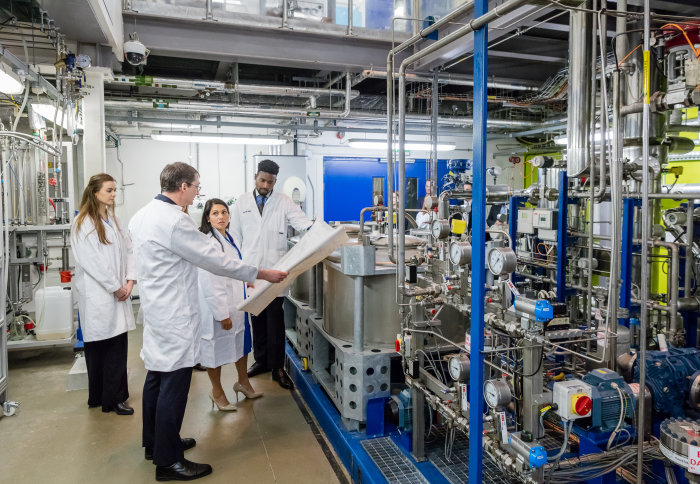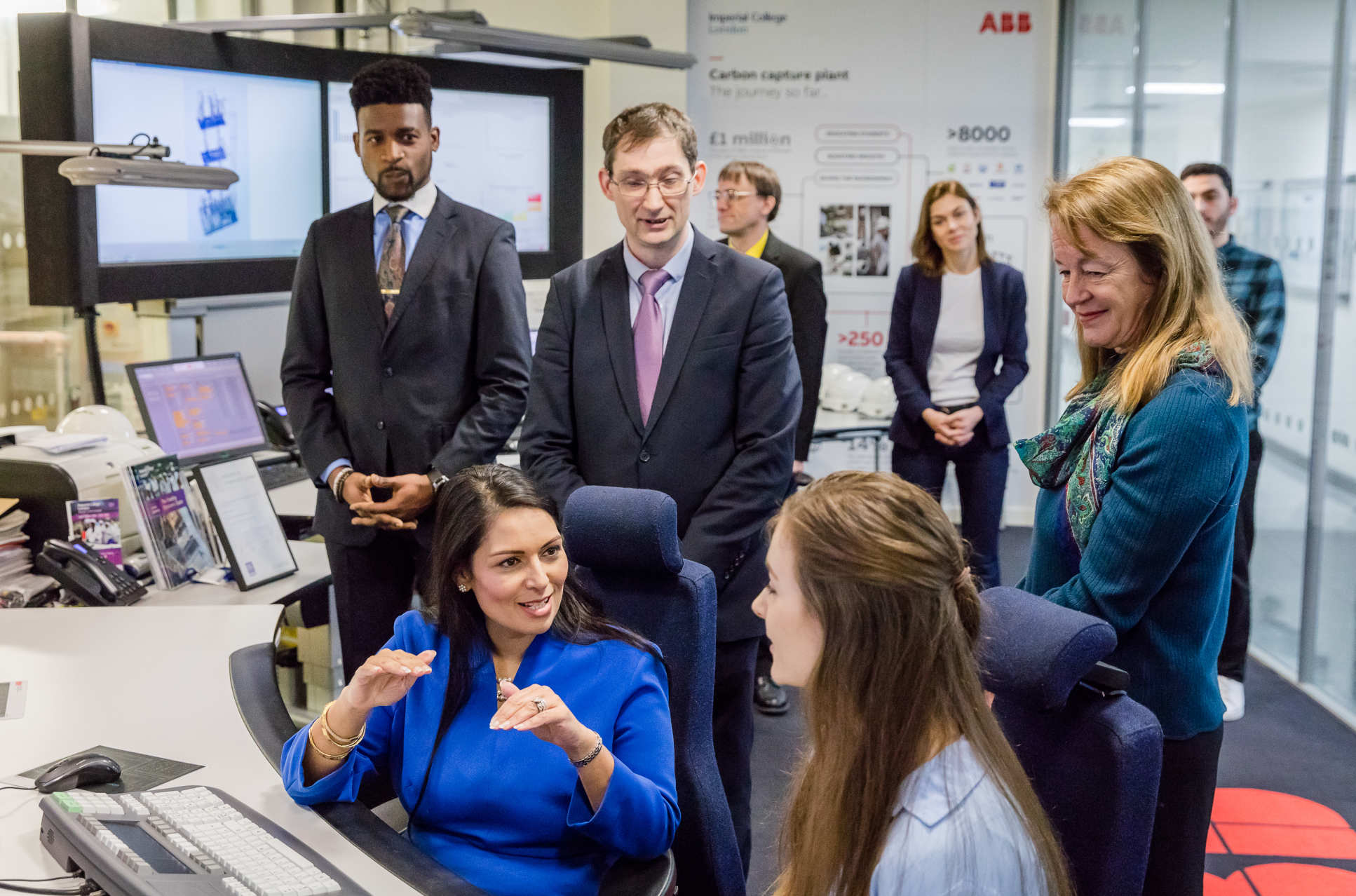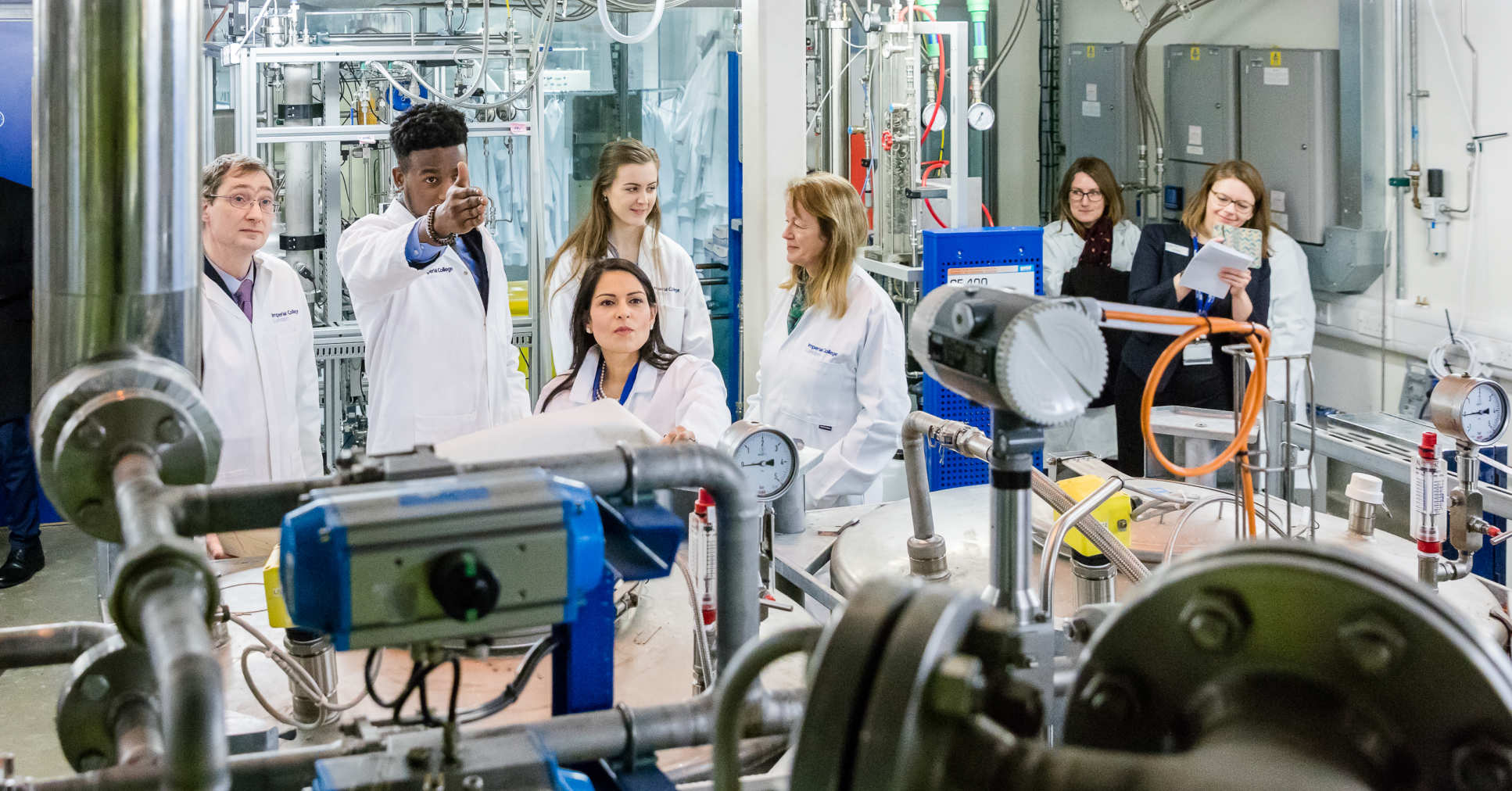Home Secretary talks visas, science and innovation at Imperial

Home Secretary Priti Patel MP with Dr Colin Hale and students in the Carbon Capture Pilot Plant
Home Secretary Priti Patel MP met members of Imperial’s international community as she discussed the impact of visa reforms on research and education.
From the race to develop a coronavirus vaccine to clean energy, British science’s international collaborations drive innovation and excellence. Professor Alice Gast President
The Home Secretary and Imperial’s President Alice Gast spoke about the government’s new Global Talent and post-study work visas, which the College has campaigned for. The policies are set to make it easier for researchers to come to the UK and for international students to remain in the country for two years after graduation.
Since the 2016 EU referendum, Imperial has lobbied four Home Secretaries and five Universities Ministers to develop an immigration system that works for all of the College's global staff and students.
Imperial used the Home Secretary's visit to make the strongest case for immigration policy that supports science, research and education, and for association to Horizon Europe.

Ms Patel visited the Carbon Capture Pilot Plant where Dr Colin Hale, Dr Camille Petit, Professor Jason Hallett and a multinational group of students spoke of the ways in which Imperial academics, students and innovators have benefited from working in international teams with global collaborators.
Campaigning for internationalism
The Home Secretary said she wants the UK visa system to prioritise the “best and brightest from around the world,” and that the government will support “those with the highest skills and the greatest talents: scientists, engineers and academics.”

Professor Alice Gast, President of Imperial College London, said: “British science is global. The new post-study work and Global Talent visas will help us to attract the world’s brightest students and researchers, wherever they come from. From the race to develop a coronavirus vaccine to clean energy, British science’s international collaborations drive innovation and excellence.”
She urged the Home Secretary to consider the international nature of the most successful academic and entrepreneurial groups, as she implements visa reform.

Ms Patel said: “These are exciting routes, if you’re an innovator like Jason”, after learning that Professor Hallett’s research group includes members from 18 different countries.
'Essential' European connections
While welcoming the visa reforms, President Gast noted that international staff and students are overrepresented among Imperial startups. She made it clear that European connections are fundamental to Imperial’s status as the UK’s most international university, and that associate membership of Horizon Europe would allow UK science to thrive. Ms Patel said “We want to be a player at that table.”
The Home Secretary said she was “impressed by the facilities you have here, not just from a research perspective, but an educational one too.”
Article text (excluding photos or graphics) © Imperial College London.
Photos and graphics subject to third party copyright used with permission or © Imperial College London.
Reporter
Andrew Scheuber
Communications Division